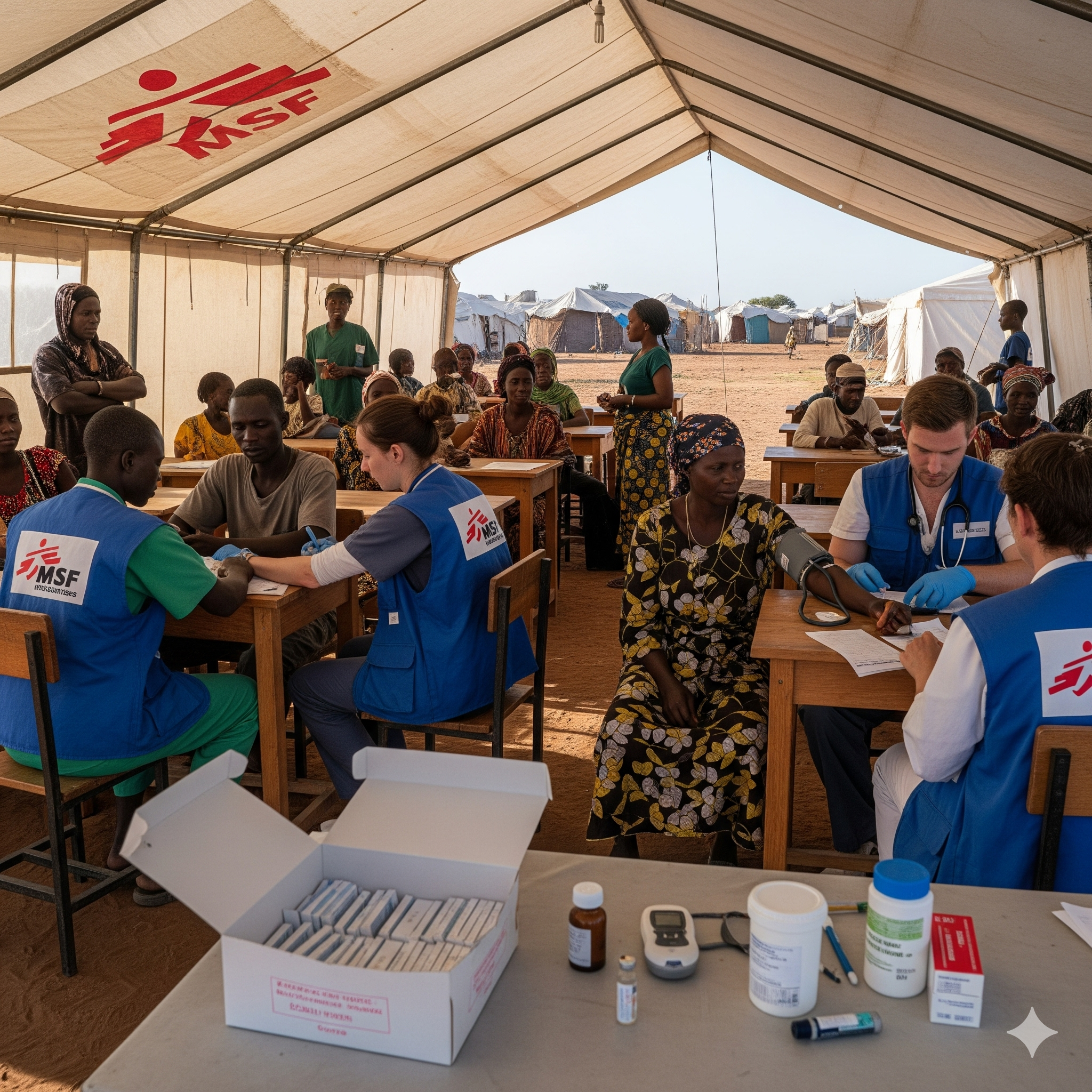Treatment Outcomes of Diabetes and Hypertension in Refugee Group 13 : Experience from an MSF Refugee Camp in Sub-Saharan Africa
Refugees, diabetes, hypertension, Médecins Sans Frontières, Sub-Saharan Africa, non-communicable diseases
Abstract
BACKGROUND: Chronic non-communicable diseases such as diabetes and hypertension are increasingly recognized as major health burdens among displaced populations in Africa. Despite their growing prevalence, data on management and outcomes of these conditions in refugee camp settings remain scarce.
METHODS AND RESULTS: We conducted a retrospective review of treatment outcomes for [Refugee Group] with diabetes and hypertension attending Médecins Sans Frontières (MSF) primary health care programs in refugee camps across Sub-Saharan Africa between 2010 and 2020. Clinical records were screened, and data on demographics, comorbidities, treatment regimens, follow-up visits, and outcomes were analyzed. Patients were predominantly middle-aged, with women slightly outnumbering men. Hypertension was the most common diagnosis, though nearly one-third of patients had coexisting diabetes. Adherence to prescribed therapy was generally high when medications were consistently available, but interruptions were common due to drug shortages, mobility, and limited referral pathways for advanced care. Blood pressure and glycemic control improved in 50–65% of patients during follow-up, though a proportion remained poorly controlled. Reported complications included stroke, heart failure, and diabetic foot disease, highlighting gaps in long-term management. Mortality directly linked to uncontrolled diabetes or hypertension was documented but relatively low compared with overall camp morbidity.
CONCLUSIONS: This review highlights the feasibility of delivering effective chronic disease care for refugees in Sub-Saharan Africa through integrated primary health care models such as those implemented by MSF. Sustained medication supply chains, continuity of care, and improved referral systems are urgently needed to further reduce complications and improve outcomes in these vulnerable populations.
Downloads





